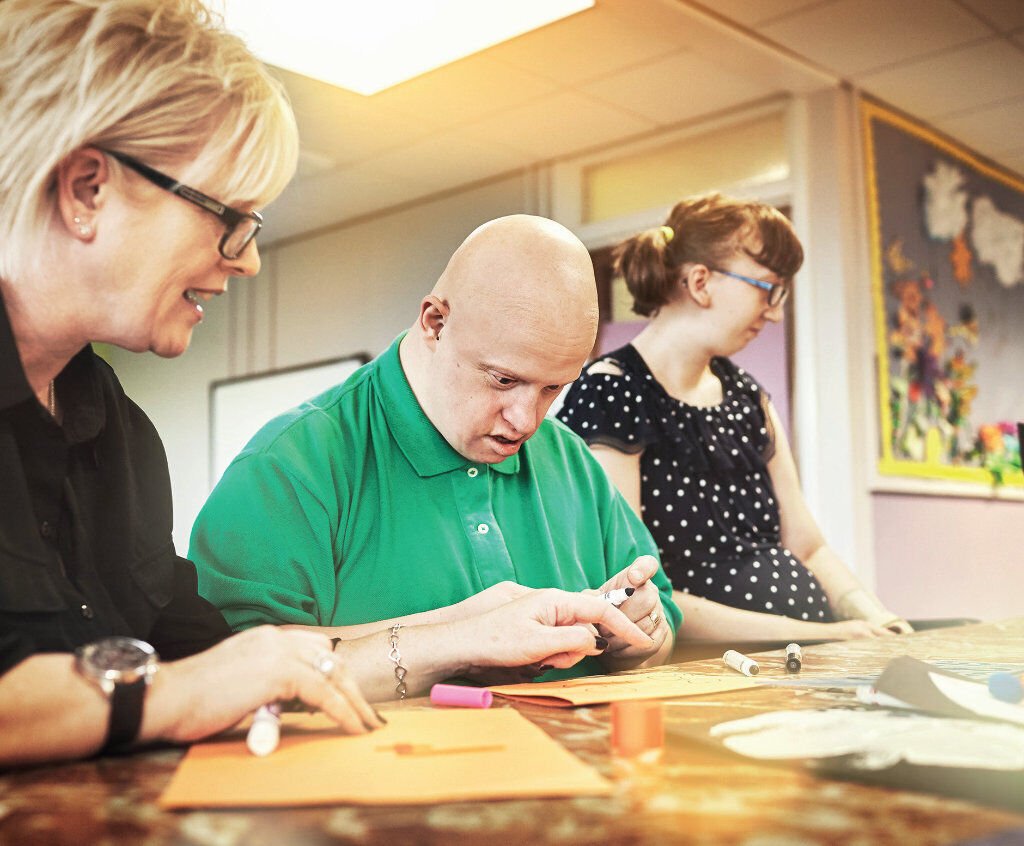Cara St John reflects on what she ’ s learned about transferrable skills over the past year.
In 2024, I decided to apply for a Band 7 Clinical Occupational Therapist post in a community adult learning disabilities team. Prior to this, I had been working in inpatient mental health for more than eight years.
Aside from working with clients in mental health settings who were also autistic or had mild learning disabilities, my experience in the field of learning disabilities was limited. I wasn’t confident that I would be shortlisted for an interview, let alone be recruited for the post.
©DMP via Getty Images
Part of me thought that the only thing that might give me a chance was my postgraduate diploma in sensory integration.
Fast forward nine months and I was successful in getting the job. I’ve now been in the role for almost six months and it has turned out to be the best career decision that I have ever made.
I’ve also realised that my sensory training is not the only transferable skill that I have to offer. The key point that I am trying to make in this article lies in that last sentence – transferable skills.

©Valeriy_G via Getty Images
Sometimes it can be so easy to forget that, as occupational therapists, we are dual trained practitioners who have the knowledge and skills to work in any setting that we put our minds to.
For years, I saw myself as a ‘mental health occupational therapist’ and feared that as I had not used many of my physical occupational therapy skills for years, they were gone for good.

©Unaihuiziphotography via Getty Images
But they are never gone for good. They come back to you. In my role in adult learning disabilities, I feel that I am using my skillset more holistically than ever before. I would now struggle to separate the occupational therapy profession into the two boxes of ‘physical health’ and ‘mental health’. Occupational therapists are both of those things, and so much more.
Since I moved practice settings, a lot of people have reached out to me and told me that they would like to do the same, but are worried that they do not have the right skills or would need to go back to Band 5 level.
This resonates so much with the imposter syndrome and anxiety that I felt when deciding to apply for my new job. I have also noticed a common misconception that it is ‘too late’ to move practice settings once you reach a certain banding. This is simply not true.
These are five key lessons that I have learnt from my personal experience of moving from one practice setting to another after eight or more years.
One, it is never too late to change practice areas. For me, I realised that the only barriers were the ones that I put up in my own head. Change can be scary, but it can also lead to so much happiness and job satisfaction.
If there is any part of you seeking a change, please explore your options and believe that it is possible.
Two, a supportive team is key. If possible, when you’re searching or applying for jobs, try to get a sense of the dynamics of the team. This could involve emailing the contact person on the job advert, scheduling a phone call, or arranging a visit to the service.
Be honest with them about your experience and where you feel you might need support. That way, you can ensure that the team and role are a good fit for both you and them.
Three, learning is lifelong, and it is okay to ask questions. When I first started my new role, I subconsciously felt like I should know everything. But the truth is, no matter how experienced you are, you will never know everything.
It is okay (and encouraged) to ask questions, as this helps you to learn and to consolidate your practice. Plus, it goes both ways; areas of practice that you are confident with may be areas that your colleagues are less sure of. You may be learning from them, but they are also learning from you.
Four, skills from your old practice setting can help you in your new one. Transitioning from a mental health role to a learning disabilities role has allowed me to integrate the expertise of both roles.
The skills from my previous role give me a unique lens to apply to my new role and support clients more holistically.
And five, above all the most important thing is that you are happy and that you feel valued. Job satisfaction comes from not only doing meaningful work, but also from being supported and appreciated by your colleagues and managers.
When you feel valued, it makes all the difference to your performance and overall wellbeing.
The Career Development Framework
The Career Development Framework – guiding principles for occupational therapy supports the professional development of the whole occupational therapy workforce to help meet the needs of people who access services, their families and their carers.
The framework offers a structure with an overarching set of guiding principles to inform career, learning and workforce development within the occupational therapy profession.

The framework is structured around four interacting Pillars of Practice, namely:
-
professional practice
-
facilitation of learning
-
leadership
-
evidence, research and development.
Each Pillar has nine career levels. Used together, the Pillars of Practice and the career levels highlight the breadth and range of opportunities available for all members of the profession.
The framework addresses needs across the workforce – from those new to occupational therapy, for example as novice support workers or pre-registration learners, through to those at the forefront of advancing the profession.
Download at https://bit.ly/3ZKQYLa.
To conclude, moving practice areas after years in one place can be scary, but it has honestly been one of the best decisions I have ever made.
The skills you build in one setting are transferable and can help you to thrive in new roles. Embrace the chance to apply what you know in different ways, and don’t doubt your ability to succeed.
With the right mindset, a supportive team and a little confidence, there is nothing that occupational therapists cannot do.
Words CARA ST JOHN, Advanced Clinical Specialist Occupational Therapist, Camden Learning Disabilities Service (North London NHS Foundation Trust ), and MSc Advancing Practice Sensory Integration student at Sheffield Hallam University cara.stjohn@camden.gov.uk
